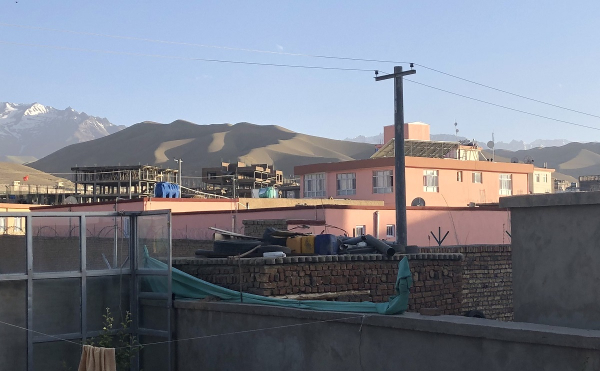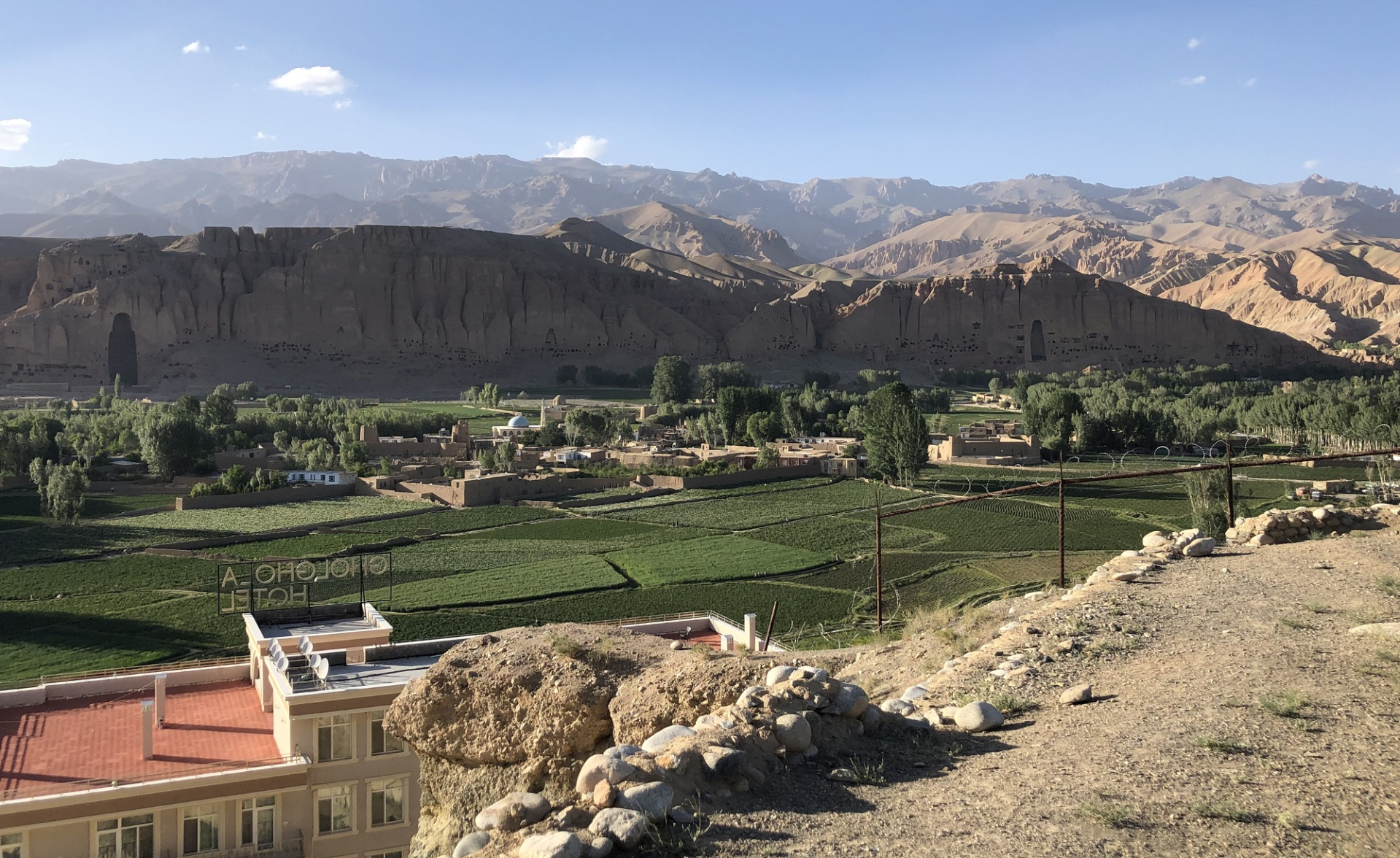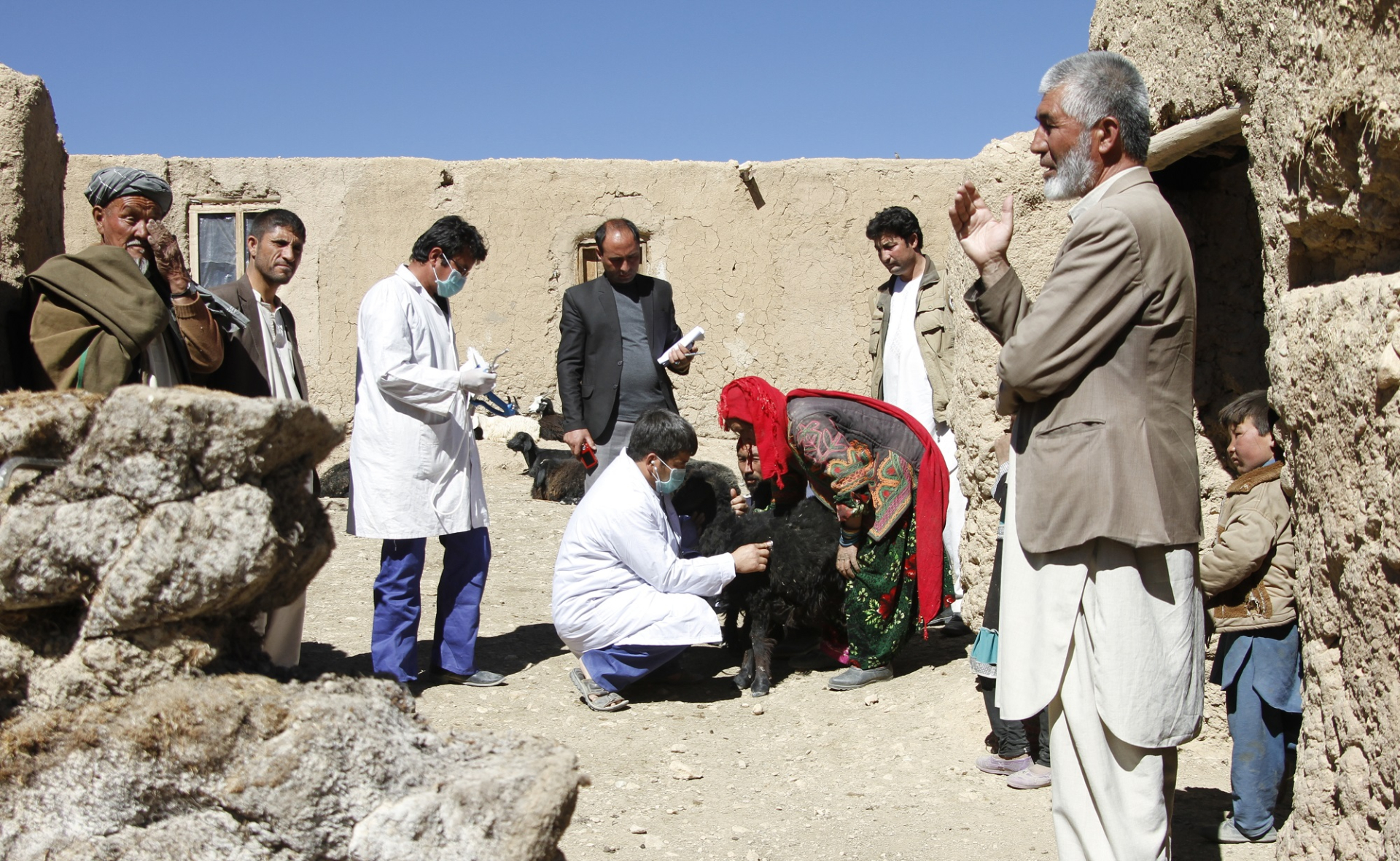News
Celebrating the enduring legacy of development efforts in Bamyan

Staff involved in Prime’s first international development programme in Afghanistan are elated about the success of a recent in-field follow up.
Right: Bamyan City in Afghanistan in 2019, more than 10 years after the New Zealand Army arrived in the country as part of the International Security Assistance Force. Photo by Angus Davidson.
Angus Davidson and Alpha Kennedy visited Bamyan Province earlier this month to research the legacy of the US $10 million Agricultural Support Programme (ASP) that wound up in 2017.
The six-year programme was implemented by Prime on behalf of the New Zealand Ministry of Foreign Affairs and Trade as part of international peace building and reconstruction efforts.
Mr Davidson lived fulltime in Bamyan for several years while managing the ASP, which aimed to modernise and improve agriculture practices in the province.
He is now using the programme as a case study for a PhD he is undertaking on the unintended consequences of agriculture-related international development.
“Farmers are spreading their wings into new agriculture businesses with the skills and confidence the programme gave them."
- Angus Davidson
Mr Kennedy, who first worked in Bamyan as an Officer with the New Zealand Army, was in charge of the programme’s Check Dam Project, which resulted in the development of 20 small, low-cost check dams across four districts and a 3.6-kilometre irrigation canal as part of the Khawal Downstream Irrigation Project.
During their recent visit, he and Mr Davidson inspected one of the check dams near Bamyan City, in Sabzak, and were pleased to see it in remarkable shape despite being built more than five years ago using only locally-available materials.
The dam has a capacity of 6000 cubic metres and is used by members of the Shahe Mardan farming cooperative to hold back water for use in the dry season.
“We managed to see two check dams and both were in excellent condition. In Sabzak, the whole downstream of the valley was green. The area has changed so much just as a result of that one single intervention.”
Above: Agriculture on the outskirts of Bamyan City in 2019. Photo by Angus Davidson.
Mr Kennedy says the maintenance of the check dams is not to a high standard, but the community is “doing enough”.
“We also went out to the Khawal irrigation site and asked some guys, 'Who built this?'. We didn’t tell them who were. They said, 'Oh, some New Zealanders – a guy named Alpha. It’s great, we love it'. That was pretty cool.
“Those check dams cost less than 10k each; most of them paid for themselves in less than a season… and they are still providing.”
Mr Davidson says he left Bamyan feeling “very proud”, believing the project had left a “multi-generational legacy”.
As well as the Check Dam Project, the ASP provided farmers with tractors and other implements, set up a beekeeping initiative for women, improved wheat yields (winter wheat yields increased by 171 per cent from the baseline average), upskilled local agriculture professionals and improved animal health services.
“At the end of the ASP, farmers became increasingly self-reliant. They were even multiplying their improved wheat seed and selling it on to other regions. They are now using their improved practices not only to increase their incomes but also their standing in their villages,” Mr Davidson says.
“The tractors imported from Pakistan are also going well and are seen by some as the single biggest game changer of the programme. Cooperatives are now also in the market for new forms of mechanisation, which is great as it shows a new culture around the adoption of new technology. In a place like Afghanistan, where things don’t change quickly, it is heartening to see.”
Mr Davidson says the Bamyan beekeeping scene “is amazing – there was nothing happening in the space when we arrived; the ASP has triggered a virtual honey tsunami”.
In addition, the livestock vaccination programme implemented by the ASP has led to an estimated 50 per cent increase in the provincial herd size. Dr Mohammed Haider, who is Bamyan's Provincial Veterinary Officer, says in some cases herders have increased their sheep numbers by a factor of 10.
Above: Dr Mohammed Haider, right, oversees livestock vaccinations in Bamyan Province in 2014. Photo by Anna Pearson.
Mr Davidson says it's clear the “softskill legacy” of the ASP will never leave Bamyan farmers.
“Farmers were saying, 'You taught us how to catch the fish', and they are spreading their wings into new agriculture businesses with the skills and confidence the programme gave them. Large-scale broiler production, for example.”
“It’s more 10 years since I first stepped out of a Hercules onto a dusty airstrip in Bamyan. Looking back, I think New Zealanders as a whole can be proud of what we have done there."
- Alpha Kennedy
Mr Kennedy, who also worked on the Bamyan Renewable Energy Programme for Prime, says the one-megawatt solar power generation facility built with funding from the New Zealand Government is still functioning well, despite being oversubscribed.
“You can see the gentrification of certain areas because of the solar project. Areas that were mud houses are now being replaced by better houses. You get a congregation of wealth around those areas with electricity. I think overall that’s a positive thing for Bamyan,” he says.
The role as Project Manager for the Check Dam Project was Mr Kennedy’s first position with Prime and he is now the company’s Middle East and Africa Director.
“It’s more 10 years since I first stepped out of a Hercules onto a dusty airstrip in Bamyan. Looking back, I think New Zealanders as a whole can be proud of what we have done there and the contributions we have made,” he says.
“It was fantastic to see the sustainability of our projects and to hear people passionate about what they had learnt or what benefits the projects had brought.
“Afghanistan is still yet to find peace but for the most part Bamyan continues to thrive.”





